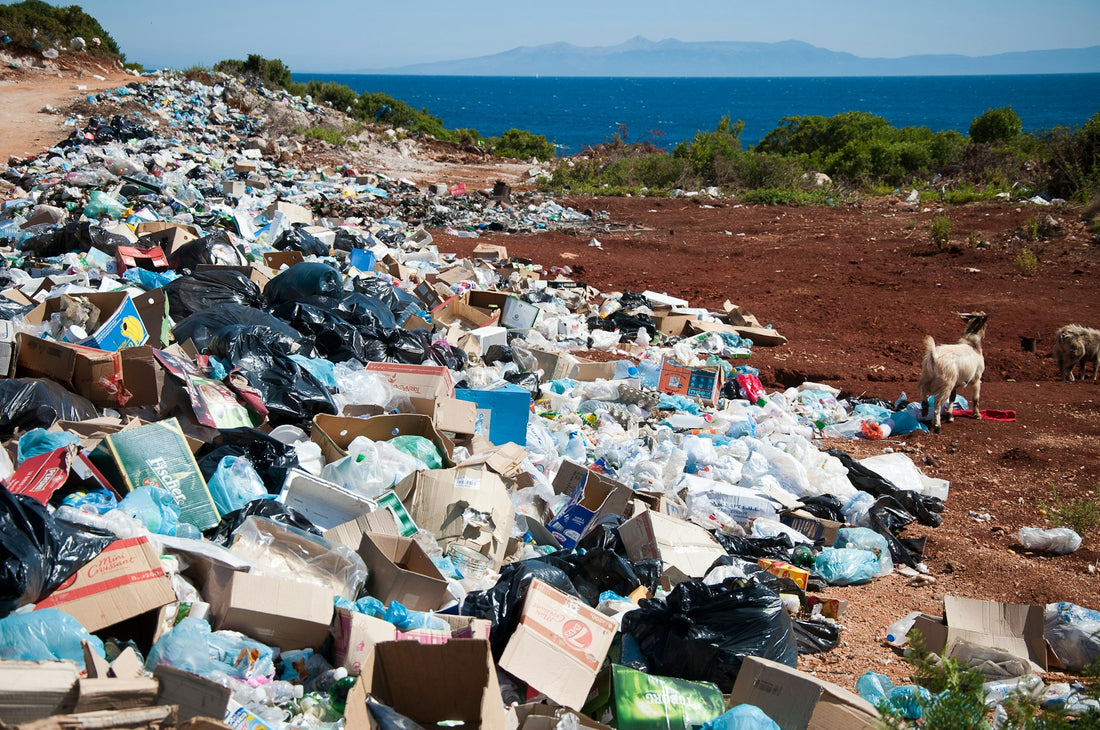
The Journey of Our Trash: why reusable products matter
Share
In the modern world, where convenience often reigns supreme, it's easy to overlook the journey our trash takes once it leaves our hands. From the moment we toss that plastic bottle or disposable cup into the bin, its story is far from over. Understanding where our trash ends up and why it's crucial to opt for reusable products can shed light on the environmental impact of our daily choices.

The Journey Begins
Once our trash is collected, it embarks on a journey, often heading to a landfill or an incinerator. Landfills, vast expanses of buried waste, are a common destination for much of our discarded items. However, these sites aren't just static repositories; they're dynamic environments teeming with chemical reactions and decomposition processes. As items break down, they release greenhouse gases like methane, contributing to climate change.
Beyond the Landfill
Some of our trash finds its way into the ocean, carried there by wind, rain, or through improper disposal. The consequences of marine debris are devastating, harming marine life through ingestion, entanglement, and habitat destruction. Plastic pollution, in particular, poses a severe threat, with estimates suggesting that by 2050, there could be more plastic in the ocean than fish by weight if current trends continue.
The Importance of Reusable Products
Against this backdrop, the significance of reusable products becomes evident. By opting for items we can use over again, we can drastically reduce the amount of waste we generate. Reusables not only minimize the demand for single-use items but also help curb the pollution that plagues our land and seas.
Environmental Benefits
The environmental benefits of reusable products are manifold. Unlike their disposable counterparts, which often end up in landfills or oceans, reusable items have a significantly longer lifespan. By investing in durable, high-quality products, we can cut down on the need for constant replacements, conserving resources and reducing waste in the process.
Economic Savings
Moreover, using reusable products can lead to long-term economic savings. While the upfront cost may be higher than that of disposable alternatives, the investment pays off over time as users reap the benefits of durability and reusability. From decreased spending on single-use items to potential savings on waste management and cleanup, the financial advantages are clear.
Taking Action
Individual actions may seem small in the face of such monumental challenges, but collectively, they can make a significant difference. By making conscious choices to prioritize reusable products in our daily lives, we contribute to a cleaner, healthier planet for current and future generations. Whether it's swapping out plastic straws for stainless steel ones or opting for cloth napkins instead of paper, every decision counts.
Conclusion
The journey of our trash is a complex one, with far-reaching implications for the environment and society at large. By understanding where our waste ends up and the impact it has, we can make informed choices that prioritize sustainability and conservation. Embracing reusable products is not just about reducing waste; it's about fostering a culture of responsibility and stewardship toward our planet. So let's choose reusables, not just for ourselves, but for the health of our planet and all who call it home.
